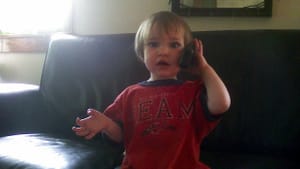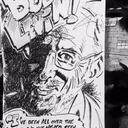Stay in the Loop
BSR publishes on a weekly schedule, with an email newsletter every Wednesday and Thursday morning. There’s no paywall, and subscribing is always free.
Compassion

Gordie, Adele’s brother, an AmCiv professor at Amherst and a lovely man, began his weekly call by dolefully announcing that his wife’s closest friend’s divorced daughter’s significant other had been murdered — perhaps by the man's ex-wife. I received this bulletin by speaker phone and Adele’s responsive “That’s awful!” direct. We had met the friend once, and I had exchanged emails with the daughter seven or eight years ago. We had not known that she had married or divorced or that the significant other existed.
I had developed excellent defenses against the blows of life. It had taken more than a far-eastern tsunami or a neighbor’s malignancy to crack those walls. But in 2011, lying in Summit hospital, out of a two-day coma, survivor of my first Code Blue, appreciative of and benefiting from the concern of others, I’d realized I’d been a callous friend and coldhearted cousin and a thoroughly (in this area at least) bad person, and I had resolved to do better.
I believed I had. I’d developed a shoulder, leaning upon which some could find comfort. Accounts of woes that once drew a few clipped words from me, while I waited for the conversation to shift to ballgames or books, now evoked multiple sincere sentences, even a sympathetic paragraph or two. But as I heard and watched and imagined Gordie’s tale snake itself into Adele’s previously pleasant day, like a mealy worm invading a peach, my muscles clenched at how her despoiled state might upset my own, and I wondered if there ought not be a mutually respected statute of attenuation when it came to the dissemination of such news. While Gordie relaxed into a report of a Tanglewood outing and an outline of summer travel plans, I counted the degrees of separation between myself and the deceased, and realized I was closer to Kevin Bacon.
Everyone whose age places them within the circles in which Adele and I usually travel carries such a mental load of degenerating spines and thickening cataracts and evilly metastasizing cells that it is hardly necessary to open the newspaper to feel one’s self engulfed by the holocaustal. With social calendars filling with memorial services like it is the Plague Years, and it is becoming as challenging to remember if it was Alice’s hip that was replaced and Benny’s knee, or vice versa, as it was to unscramble the Enigma machine’s encoding, it seems worth considering how necessary it is to add to the burdens of others by ladling onto them a portion of your own. There might even be wisdom in mandating the adoption of a rule similar to the one which a fellow in my locker room aisle says governs all discussions when he and his pals get together: “One organ; one grandchild.”
“I mean,” I said, when Adele had hung up, “I didn’t lay on him Michael and Eddie and their failing hearts which brought them in, within 24 hours, a continent apart, for stentings.”
Her sigh suggested I was misguided. “When someone who feels close to you is troubled, it is appropriate for them to turn your way for comfort. The measure is their anguish, not what the event is likely to mean to you. I’m fine, so view it as an opportunity to gain mastery over something not within your favorite teacup.”
“Guess I have more work to do,” I said.
“That,” she said, quoting her late cousin Diane, a Baba Ram Dass disciple, “is what we are here for.”
Sign up for our newsletter
All of the week's new articles, all in one place. Sign up for the free weekly BSR newsletters, and don't miss a conversation.

 Bob Levin
Bob Levin